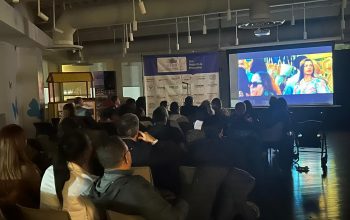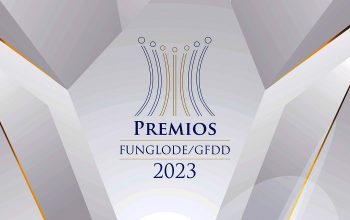news
Political Expert Speaks of the Leftist-Reality in Latin America
May 31, 2007
Dr. Marifeli Pérez-Stable, Vice President of Democratic Governance for The Inter-American Dialogue, presented her lecture: “Hot Topics on the 2007 Latin American Agenda,” at FUNGLODE’s auditorium in Santo Domingo.
Pérez-Stable asserted that the current political climate in Latin America differs greatly from that of the early 1990s. “The future was
promising, with signs of good governance and advancements in social welfare,” posited Pérez-Stable. “The end of the decade, however, was marked by growing discontentment.”
promising, with signs of good governance and advancements in social welfare,” posited Pérez-Stable. “The end of the decade, however, was marked by growing discontentment.”
Pérez-Stable argued that by the end of the 1990s, the political left had fractured into three distinct parts. One she referred to as “democratic,” one she referred to as
“populist,” and the other she referred to as “corporatist.”
“populist,” and the other she referred to as “corporatist.”
She described the leftist approach to governance characteristic of political administrations in Chile, Brazil, Uruguay, and to a lesser degree in Peru with Alan García, as democratic, claiming that this political left is the product of democratic governance that is based on the exchange of power.
According to Pérez-Stable, the populist approaches to governance can be seen in the current political administrations of Venezuela, Bolivia, and Ecuador. She stressed that in these cases processes of democratic governance are ruptured by the crumbling and total collapse of political parties and the absence of stable institutions. These ruptures consequently spur civil discontentment.
Pérez-Stable ascertained that the leftist styles of governance employed in Mexico and Argentina are corporative in nature, and place a great degree of focus on the health of economic sectors and a lesser degree on social welfare policy. She argued that although there has not been a PRI president in Mexico in the last 6 years, current culture and political criticism are tainted by Príista corporativism which obstructs both civic participation in democratic
processes and sustainable development.
processes and sustainable development.
the democratic left from the populist left. The democratic left supports market-driven economic policy, whereas the populist left views the state as the center of economic activity. The democratic left governs within the parameters of representative democracy.
She stressed that despite divisions within the left, current political administrations in Latin America have become increasingly more critical towards the neoliberal social and
economic policy models promoted by the Washington Consensus. Pérez-Stable argued that this divergence from the neoliberal philosophies embraced by the Latin American administrations of the 1980s signifies a noteworthy shift in socio-economic policy strategy.
economic policy models promoted by the Washington Consensus. Pérez-Stable argued that this divergence from the neoliberal philosophies embraced by the Latin American administrations of the 1980s signifies a noteworthy shift in socio-economic policy strategy.
Pérez-Stable emphasized the need for the democratic left to embrace market-driven economic policy. “Without fiscal resources, Latin American
nations will not be able to make the investments necessary to spur development,” she asserted. She declared that with 40% of the region’s population living in conditions of poverty, efforts to alleviate socio-economic inequity will prove critical not only to disenfranchised populations, but to Latin American society at large.
nations will not be able to make the investments necessary to spur development,” she asserted. She declared that with 40% of the region’s population living in conditions of poverty, efforts to alleviate socio-economic inequity will prove critical not only to disenfranchised populations, but to Latin American society at large.
Pérez-Stable spoke positively of the strides made by Chile with regard to
poverty alleviation. Through the impleme
poverty alleviation. Through the impleme





